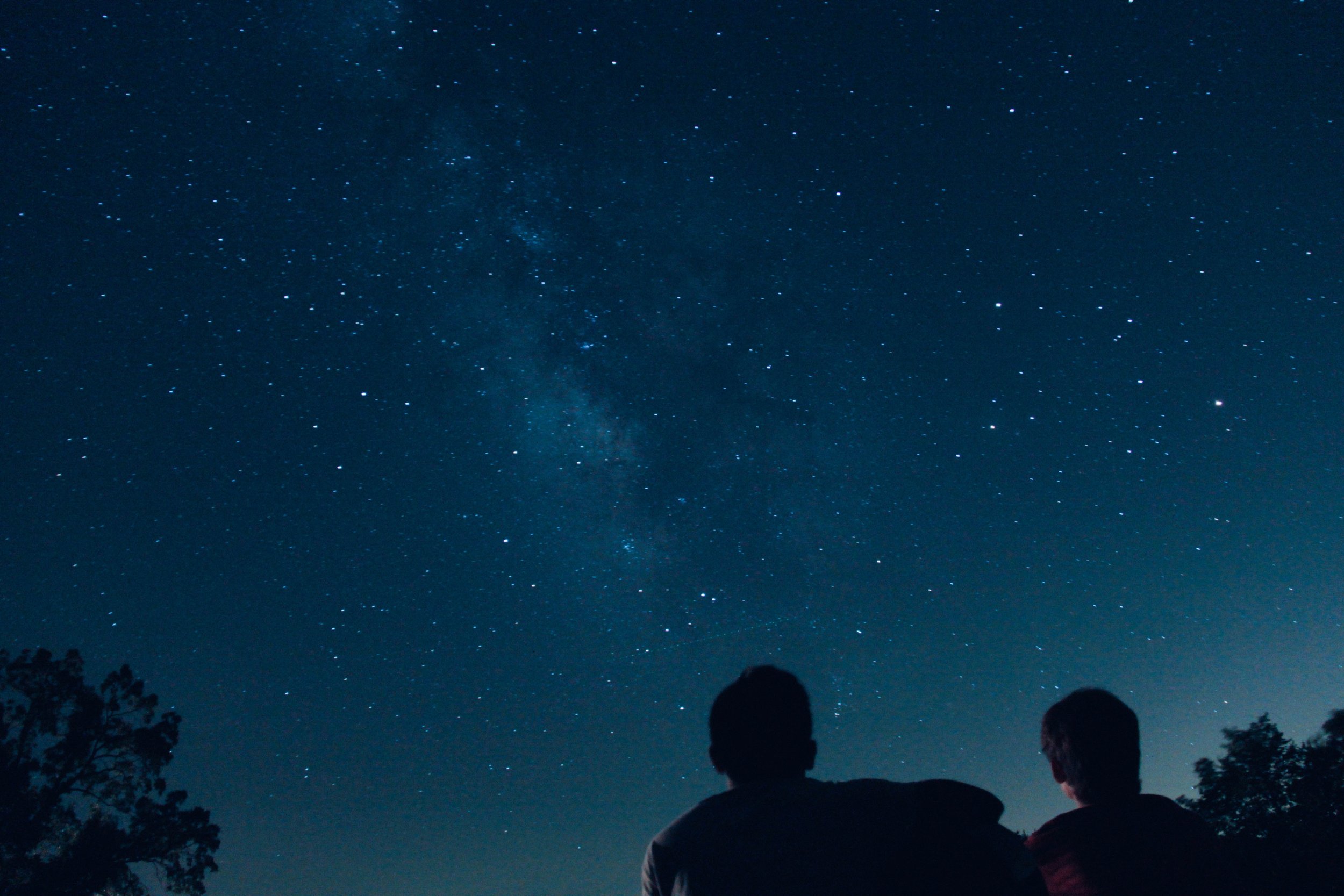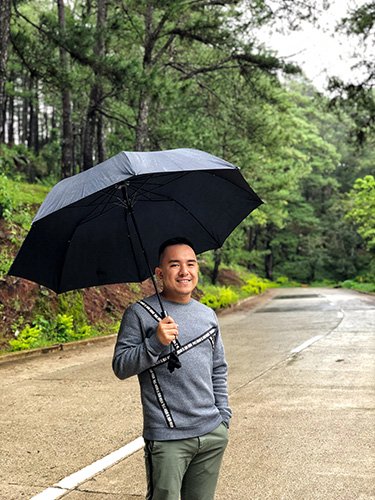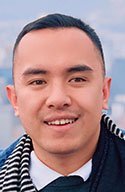Star-Crossed in Sagada
/The author in Sagada (Photo courtesy of Ian Layugan)
We were backpacking in Benguet. I was introducing him to my hometown of La Trinidad, the floral carpets of Atok, the monkey trails in Kabayan, and the bustling marketplaces in Buguias. We were supposed to stay for three more days in Baguio. Afterwards, he could take the Victory Liner and be on time for work on Monday. We still had enough clean clothes and time to burn, and the Baguio traffic was leading us nowhere. We took the bus to Sagada.
To his family, I was just barkada, a flitting appearance at their gatherings, with no presence on his social media. They do not even know my surname. He lives in Quezon City, and whenever he travels to Baguio to see me, his family and colleagues are made to believe it’s work-related: a seminar, business meeting, or site inspection.
No one around him knew anything about me except for his small, trusted posse. Even if we feel comfortable enough to be seen together in cafés or the movies, we must behave like tropa. I am a person proud of and living my truth. He, however, was not ready. The relationships he had before me were with the opposite sex.
We have established a hundred rules before we got to where we were. One of these is what I called the Incognito Mode: traveling together, but to places where there is no possibility of him being recognized. It is a good excuse for us to backpack and go to places we are less familiar with. That day, Sagada was the best option.
We have a habit of just watching the stars, wherever we are. Some couples like sunsets. We, especially I, adore starry nights. As a child of the mountains, I feel safe with the stars yonder. My mom had put an old mattress on our porch when I was a child, and I would just lie there, dreaming, watching the specks of light for hours on end. When he and I surveyed for a place to stay on Airbnb, we looked for one with a porch or a wide window with a sky view.
(Photo by Ryan Jacobson on Unsplash)
Under the stars, I watched him change. The starry night is like a veil, but instead of covering him, it reveals him. He told me about the predicaments of being a middle child, about his years as a strapping boy scout, his siblings’ children whom he adores, and his dream of running away from his corporate job to be a cabbage farmer.
It was also in the night that he found the safety to be candid. He talked about how he missed his father who had passed; the years of suppressing feelings and making spurious choices because it did not align with his family’s expectations, never mind that it cost him his own happiness.
He felt at home on the lush slopes. Walking around Sagada, we stood at the foot of the tiered terraces, in awe of the staggering steps perfectly sculpted by both tool and foot on the hillside. The sun would set down on us, and its unforgiving vehemence would turn the verdant canvas into a glittery landscape. The stars would shine the path home. When we got back to the cabin he booked, we would open all the windows and watch the stars while dining on take-out.
(Photo by Ruby Jane Motilla on Unsplash)
He asked me why stars fascinated me that much. I told him that an unusual element to it always renders me speechless. My parents taught me that humility is the highest virtue, and I think stars are its perfect defining symbol. For the first time, he told me how for him, it’s sadness: the night is a deadline to save the world.
I was surprised. Even his voice had a fervor I had never placed before. “Have you ever made decisions before that cost your life or happiness?” he finally asked. The question scared me, but I prodded him to continue.
Under the stars, he told me about his despair. He narrated episodes of his life I did not know. The blows kept piling like Jenga, all unfamiliar to me. But he was pulling the wrong blocks, and the world of possibilities and the planned future we talked about for years tumbled down. It was apparent that he was sick. I feared for his life, but I was astonished by his strength and will. I took it as a sign. “We can go through anything together,” I assured him. He assured me that all he needed was support, a companion.
On the bus ride home, I realized that it all made perfect sense. It explained his mood swings, his temper, the quarrels I overlooked in exchange for his company, and the occasional silences. The sadness was replaced with anger for the unspoken and the unexpected, a wave of hatred for the cruelties of this world and how it changes even the best of people.
The extended lockdowns during the pandemic gave us the time and space to rethink things. I decided to continue. Later, he decided it was best to let go. I resented that night and the nights that came after.
Before I could even pick myself up, he had moved away, and from what I heard, had found someone to share his burdens with. It’s interesting how the life you comfortably lived gets obliterated in a moment. It was all too sudden and too heavy, and I fell into the deep hole of depression.
I understand why a star can’t be our solace when it is solitary. I now find that like me and him, we belong to the same sky, but we are light-years away from each other, and the distance that made us stronger before is the very reason we are apart now. Stars are a fluke. They shine diminutively and remotely, but they are somehow corporeal.
I went back to Sagada a few times after he left. I always found a hearth among the homestays in town, but I could never bring myself to stay in or even look at the cabin we last booked. In my evening walks, I mechanically found myself gazing up at the stars, but only the sound of dogs howling and muffled voices of other guests kept me company. It takes away the sentimentality. The stars are now reminders of how a love strong but stringent can make me feel utterly and terribly small.
At the height of the pandemic when tourism was halted, I was part of a research team sent by an international NGO to work in Sagada, despite the tough restrictions. We usually stayed in the community near Bomod-ok Falls where the wet fields glittered in the sunset when we were homeward bound.
To get to the main road, we had to walk for more than two hours, each of us wrapped in thoughts. Mine were about him. As darkness fell on Sagada, we would trail through the steep and stony path with our heavy backpacks, worried about slipping. I once held on to a local guide on account of my weak eyesight.
“The stars cannot protect us tonight,” the guide told me. “It rained.”
It was apropos. “They’re not there when you need them,” I bitterly replied.
“Because the sky gives us what we need most,” he reasoned. “Maybe you needed the rain more than the stars.”
(Photo courtesy of Ian Layugan)
It was the first time I was snapped out of my reverie. Stars are phantasms. They are wisdom scattered in smithereens. Like us, they are autonomous bodies strewn in the same cosmic space, sometimes belonging to a constellation, but sometimes quite alone. It was not the rationalization I was waiting for, but it was comforting nonetheless.
We trudged on. Soon, Sagada felt like home again. Later, I packed my bags and left, leaving every reminder and memory of him. Slowly, in my new home, I have summoned the courage to look at the stars again, without having to think about him anymore.
Ian Layugan is a teacher and researcher who hails from Benguet province. He served as the National Lead for the Philippines this 2022 for a research project on Covid-19 experiences at the Asia Research Institute of the National University of Singapore. He currently lives in Japan.
More from Ian Layugan







